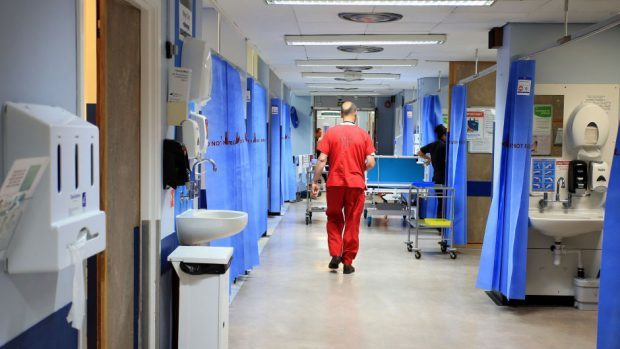Shock new figures have revealed that more than 500 people have died in north-east hospitals in the past five years despite being well enough to go home.
The statistics, obtained by the Tories, also show that up to five patients had to wait up to nine months in a hospital bed while waiting to be discharged.
And in the last three years, 23 people died who were classed as well enough to be discharged but left out of official bed-blocking figures because they have complex needs.
NHS Grampian was unable to provide the exact overall figure due to data protection, but confirmed the total number of deaths was between 506 and 521.
Of these, 471 were for health and social care reasons, and almost 20 because of “patient/carer and family-related reasons”.
The health board said there was “no quick fix” for the issue but said it was working with the north-east’s three health and social care partnerships to address the problem.
The partnerships are responsible for finding patients’ care once they are ready to leave hospital.
>> Keep up to date with the latest news with The P&J newsletter
Last night a patients’ group said there continued to be an “absence of understanding” from health bosses that more resources were needed in order to meet the demand of an aging population.
Professor Jamie Weir, spokesman for Pact, said: “It is often difficult to arrange suitable care packages for patients with complex issues but it should not be impossible. The amalgamation of health and social care budgets was supposed to help alleviate such problems but there is little evidence of this occurring.
“The absence of understanding that the increasingly elderly age groups need significant funding and staffing increases combined with the lack of care home beds, have lead to this sorry situation.
“Bed blocking in any form causes stress for patients and staff, and denies other patients access to those hospital beds, leading to prolonged waiting times for operations, investigations and general care.”
And one of the region’s MPs blamed the Scottish Government, claiming it had failed to “get to grips” with the bed-blocking problem in the country’s hospitals.
Andrew Bowie, West Aberdeenshire and Kincardine, said: “Jeane Freeman said this was her number one priority when she became SNP health secretary.
“But in NHS Grampian, and across Scotland, we have seen no direction from her on how to improve social care and allow these people to leave hospital.
“It’s hard to imagine someone waiting nine months to do so, and some dying while they wait.
“But this is the experience of many families today.”
An NHS Grampian spokeswoman said: “Delayed discharge is frustrating for the patient, their relatives and our clinical teams. These are patients who are medically fit to leave hospital but are unable to do so. This may be because they are awaiting a care home place, adjustments to their own home or perhaps individual family circumstances.
“The integrated joint boards, bringing health and local authority teams even closer together, aim to provide a seamless response to the health and social care needs of people in Grampian. All areas have action plans which deal with short, medium and long term approaches to delayed discharge.”
The Scottish Government said it was spending £700 million to support social care to help address bed-blocking.
A spokeswoman said: “We are continuing to work closely with health and social care partnerships to ensure the good practice which exists in many areas is spread across Scotland.”
